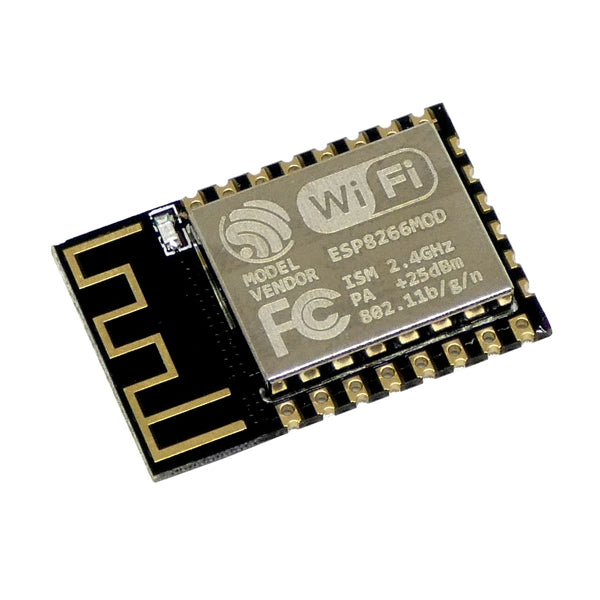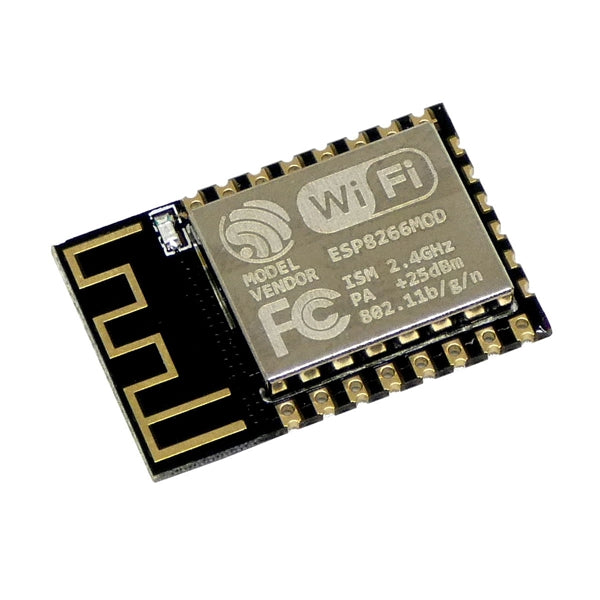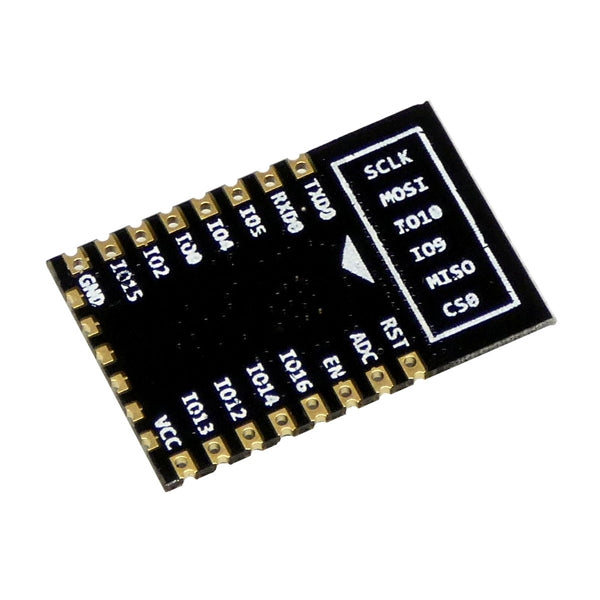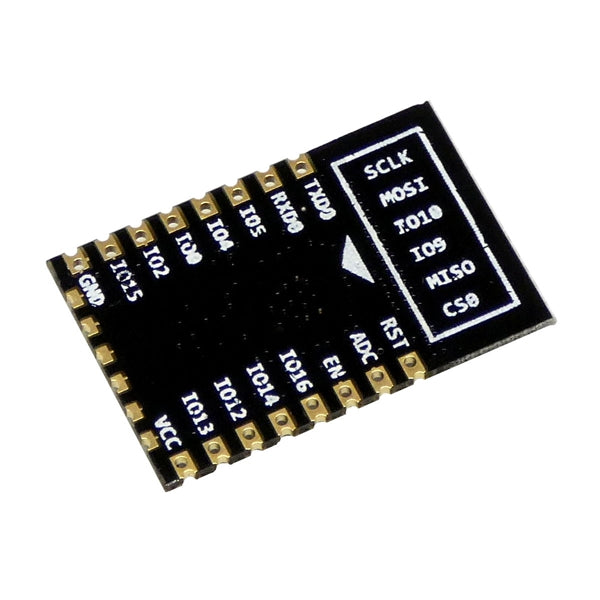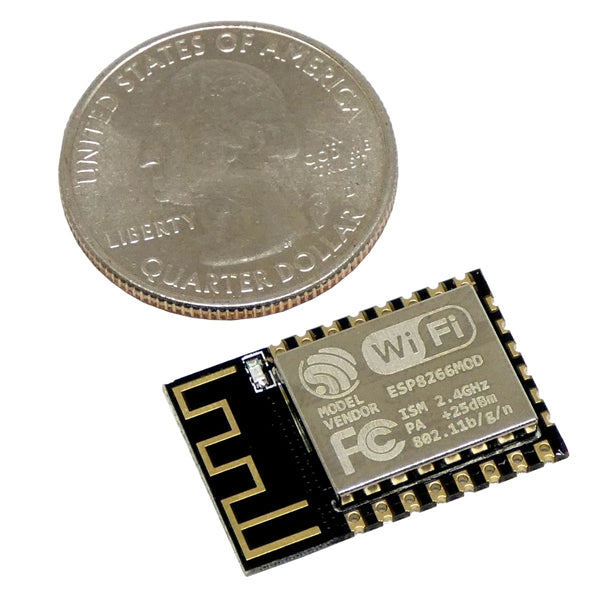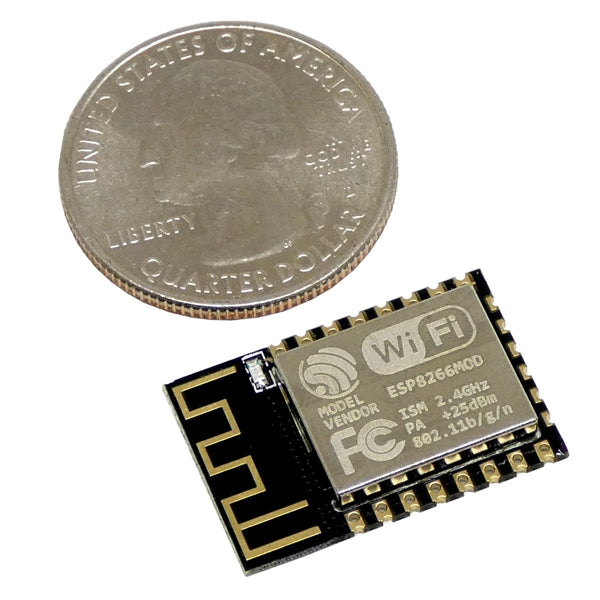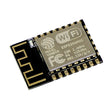Note: This ESP8266 ESP-12F module is an upgrade to the ESP-12E. It is fully pinout and software compatible with the ESP-12E. This new design features a four-layer PCB and improved antenna layout which increases the modules range.
The module has the ability to run independent of a host controller.
The ESP8266 Serial/UART to WIFI module is a great way to connect your Arduino or other microcontroller projects to a WIFI network.
Create your next internet of things (IOT) project with affordable network connectivity by implementing this module into your design.
The ESP8266 has 3.6V max tolerant I/Os so you will need a logic level converter to connect it with higher voltage devices such as Arduino.
The ESP8266 requires 3.3V power so you may need a 3.3V voltage regulator to provide the correct voltage, depending on your setup.
Check out our ESP-12 breadboard adapter to easily use this module with a breadboard.
Specifications
- 802.11 b/g/n
- Serial/UART baud rate: 115200 bps, changeable
- Integrated TCP/IP protocol stack
- Input power: 3.3V (see "Resources" below for 3.3V power options)
- I/O voltage tolerance: 3.6V Max (see "Resources" below for level converters to connect to higher voltage devices (i.e. Arduino))
- Module's dimensions: 24mm x 16mm x 3.4mm (0.95" x 0.63" x 0.13")
Resources
-
ESP-12 Module Schematic
-
ESP-12F Datasheet
-
ESP8266 Technical Reference
-
ESP8266 AT Instruction Set
-
ESP8266 AT Command Examples
-
ESP8266 Information and Support Community
-
Kolban’s book on the ESP8266 (Free PDF or ePub3 e-reader document)
-
ESP8266 Weather Display Tutorial (from Zeflo)
- ESP8266 with Raspberry Pi (by Razvan Dubau)

